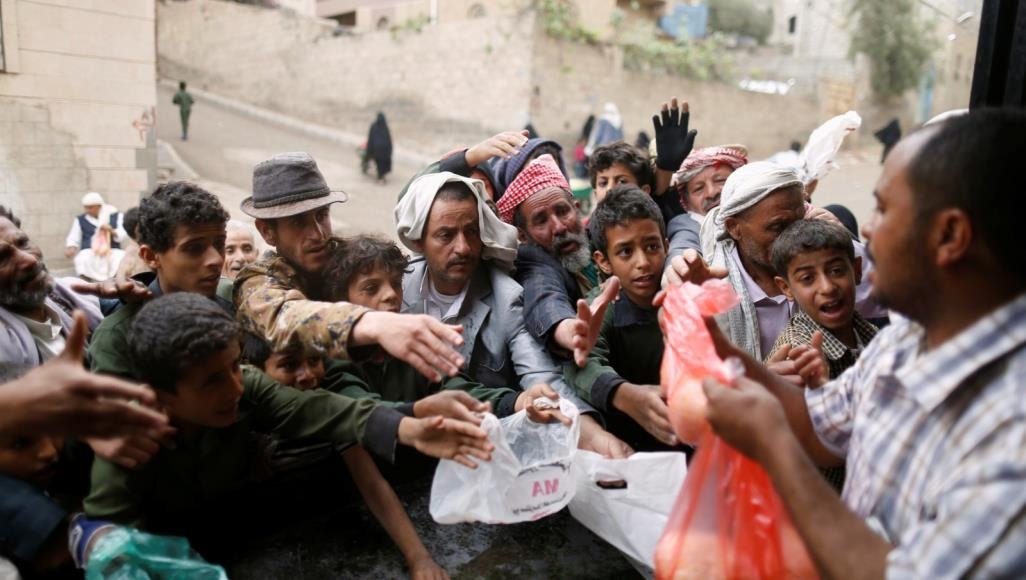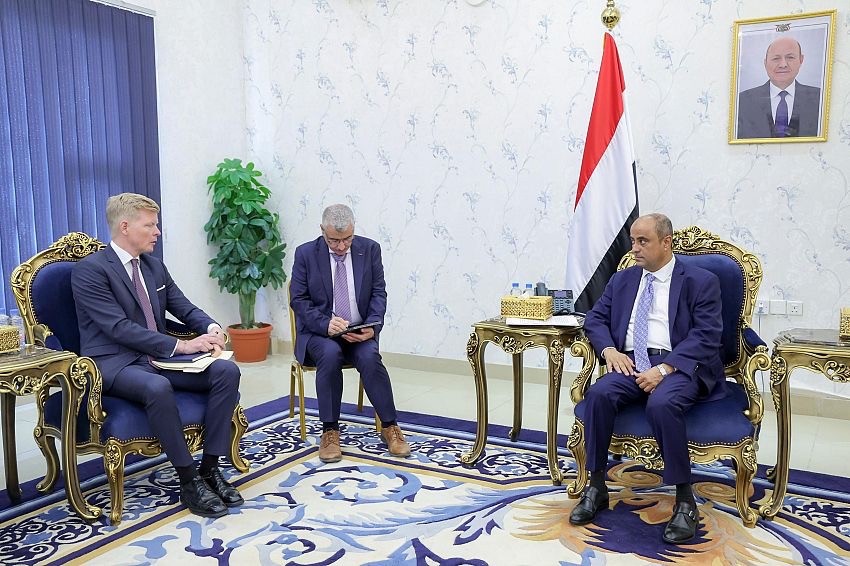
Barran Press By Abdulaziz Al-Abara
The Al-Mokha Center for Strategic Studies has issued a stark warning that Yemen is facing one of the worst humanitarian crises in its contemporary history, with millions at risk of widespread famine. In a political alert shared with Barran Press, the center cited recent data and field assessments that highlight the deteriorating situation, emphasizing the urgent need for action from both local authorities and the international community.
The alert points out that the factors contributing to Yemen's crisis are not recent but rather the result of decades of mismanagement, ongoing wars, and political instability. With conflict persisting for over nine years, conditions have worsened dramatically, threatening to plunge the nation into a famine that could have repercussions extending beyond its borders.
Widening Hunger Crisis
According to the Al-Mokha Center, the economic crisis has escalated, with hunger now affecting new social groups, including government employees in Houthi-controlled areas who have either lost their salaries or seen their purchasing power severely diminished. The report notes a sharp rise in the cost of essential goods in urban areas, while rural populations struggle to meet their daily needs.
Despite efforts by some groups to adapt—such as expatriates sending money to their families—these measures are insufficient to alleviate the crisis, which has become increasingly evident in daily discussions and social media, where calls for urgent intervention are proliferating.
Impact of War and Mismanagement
The report details the catastrophic effects of the ongoing war on Yemen's infrastructure, including roads, hospitals, and schools, which has disrupted livelihoods for millions. Since the onset of the conflict, the humanitarian situation has deteriorated to the point where Yemen is now one of the largest humanitarian crises globally.
The cessation of salaries in Houthi-controlled areas since 2016 has further exacerbated the crisis. For many families, government salaries were the primary source of income, and their loss has rapidly thrust them into poverty and hunger. Humanitarian assistance from international organizations has proven inadequate to combat this decline, especially given the challenges these organizations face accessing Houthi-held territories.
In areas governed by the legitimate government, conditions are similarly dire, with the devaluation of the national currency eroding purchasing power, making basic necessities unaffordable for most citizens. Price increases driven by both global and local crises have further burdened the population.
Global Crises and Regional Neglect
The political alert highlights a decline in financial support from the Arab coalition countries, particularly Saudi Arabia and the UAE. While this support was crucial in the early years of the war, it has diminished significantly since 2020, contributing to the worsening conditions in major cities like Aden and Marib, where financial aid was essential for covering salaries and basic needs.
Moreover, food aid has taken a serious hit, partly due to other humanitarian crises worldwide, such as the situation in Ukraine, which has received greater priority from international organizations. This reduction in international support has intensified Yemen's hunger crisis amid deteriorating internal conditions and ineffective humanitarian interventions.
Pressures from Houthi Policies
The alert also mentions the significant pressures exerted by the Houthis on UN agencies and international organizations through the abduction of their staff and restrictions on their activities. These tactics have curtailed humanitarian interventions in Houthi-controlled areas, leaving many Yemenis without access to essential aid.
Despite repeated warnings from international organizations about the escalating humanitarian crisis, the situation in Yemen continues to deteriorate, with no political resolution in sight to end the ongoing conflict and restore stability.
Call for Urgent Action
In its political alert, the Al-Mokha Center urged the international community and regional nations to take immediate steps to prevent Yemen from descending into famine. Recommendations include allocating financial grants to support the Yemeni Central Bank in Aden, establishing a Gulf fund for Yemen's economy, and providing special privileges to Yemeni expatriates.
The center stressed the importance of enhancing humanitarian interventions through international and humanitarian organizations to deliver urgent food and aid effectively. It also emphasized the need for a comprehensive political settlement to resolve the humanitarian crisis and establish lasting peace.
"The world must act now before it’s too late," the alert warns. "Yemenis are living their worst days, and any delay in providing support could lead to catastrophic consequences that may be irreparable in the future." The center cautioned that Yemen's situation cannot withstand further delays or negligence, with famine looming and the absence of international and regional intervention likely to trigger a humanitarian disaster with far-reaching effects.





